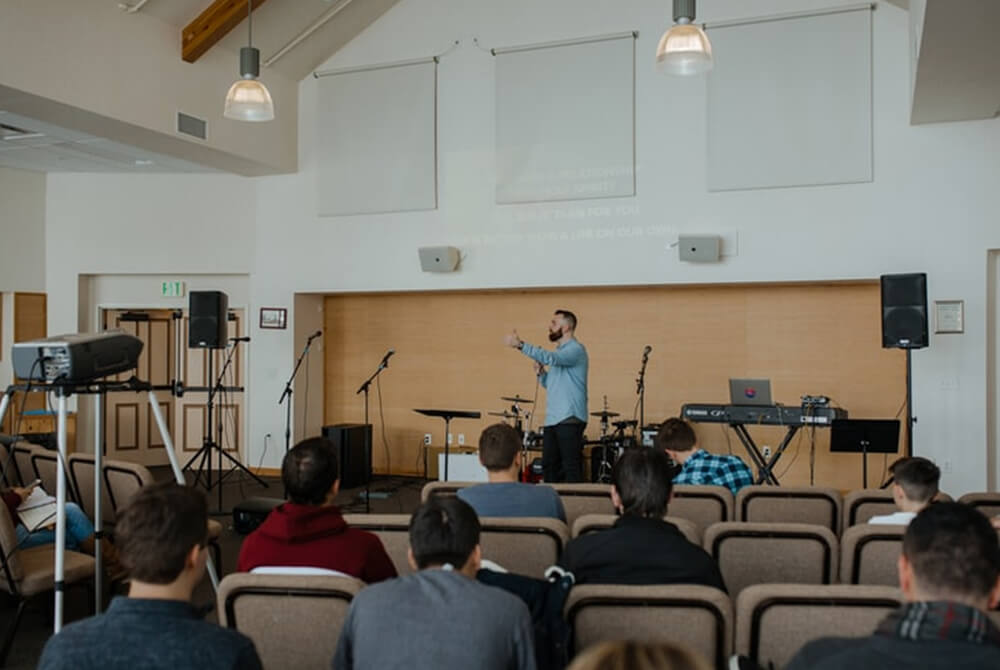
How to Create Your Congregation’s Church Platform Online
Is your ministry hoping to create a church platform online? Whether you hope to launch a full-scale online church with dedicated online services and all, or you’re simply looking to expand your reach to the digital world, these tips will help you do it.
In this guide, we’ll discuss how to create your church’s congregation platform online so that your supporters can interact with your church whenever they feel the need while building strong relationships with those around them.
Assemble Your Online Ministry Team
If your church simply views the digital world as a front for your church’s physical presence, you’re going to miss out on a lot of opportunities. The fact is, the way people consume information has changed, and so has the way that many people worship.
If you want to cultivate passionate, sustainable involvement amongst your congregants, you need to take a dedicated approach to your church’s online congregation platform. That means beginning the process by assembling an online ministry team. These may consist of volunteers or you may take on some responsibilities yourself, but remember to delegate where possible.
Depending on the size of your church and its resources, you may or may not be able to fulfill all of these roles and responsibilities. Focus on the fundamentals to begin with and, remember, you may wear many hats in the development of your online ministry. As time goes on and your online ministry goes (along with your church’s financial support), you may find room to recruit new people to fill these positions.
Important Positions
- A team leader who can coordinate with everyone and make sure the goals and culture of your ministry shine through. This person should be familiar with your church and its values. They’ll be the guiding light when it comes to how your church is represented online.
- A social media coordinator who can help direct digital communications to and from your church. They play a major role in how your church is perceived. They’ll work with the team leader to make sure that they have all the information they need (like the topic of next week’s podcast) so they can post content accordingly.
- A web designer who can create a modern, lively website that people want to interact with. This person should seek to incorporate giving forms and other functional elements, all while staying true to the brand of your church.
- A photographer who can take sharable photos for your website, blog posts, and social media pages. This person should be active at your church and willing to attend services, events, fundraisers, and volunteer groups to get plenty of nice photos.
- A graphic designer will enable your church to present a consistent brand across platforms. You may not need one full-time and this is a great position to offer a freelancer for a little bit of money. They should create graphics for your website, social media profiles and other platforms to ensure consistency.
Perfecting the Videos
- A video editor is necessary if your church plans to record sermons or offer other forms of video. They should know how to cut things down so the focus is on the core message and be able to alter the viewing window and length accordingly for various platforms. They may also add closed captions and other effects.
- An audio editor is essential if your church hopes to operate a podcast. They will cut down and edit anything you record for clarity and ensure the listening experience is enjoyable. They may add intros/outros, sponsorship mentions and more.
- A host for any video and/or audio events your church plans to run is the final role you need to fill in the list. Make sure it’s someone who your followers can resonate with. Discuss with them about the tone you’d like them to take on. For instance, should they loosen up and have fun with it or should they take on the tone of a devoted mentor?
Pace and Delegate
While this may feel like a long list of roles, you don’t need all of these positions filled to start with. You may also be able to delegate these to gifted volunteers rather than paying a professional graphic designer or web designer to come in and create content for your church. Once you have a plan, consider putting out a volunteer request and hearing out their ideas.
Follow Church Online Platform Fundamentals
Once you begin to get an idea who you’re going to assign to the various roles above, it’s important that you go through the four fundamental steps of bringing your ministry online. These are:
- Define the reason. Why is your ministry going online? Are you hoping to reach the youth, the elderly, the disabled? Do you want to grow your church beyond the local community?
- Get people on board. Your church may or may not be receptive to the idea of an online ministry. Your church leaders should explain the why and how.
- Budget for the change. Your church needs a budget for getting online. No matter how big or how small, come up with a number and work with it.
- Choose your platforms. Your church can’t be everywhere online. Start with a website and branch out from there. Consider where your congregation spends the most time online.
As you plan your move to the digital world, consider what your congregants want. How do they want to interact with your church? When do they want to interact with your church? When in doubt, you can send out a survey to get direct input so you aren’t guessing. They’ll be glad to know that you value their opinions.

YouTube live streaming
Use Your Budget Wisely
Once you budget for the move to the online world, your church needs to be mindful about how those dollars are spent. Even if your budget is just $50, you can make an impact by investing in the right areas. This may include hardware, software, a domain name/hosting or design services.
You should sit down with your newly formed team and consider what’s most important to your ministry to start with. If you don’t already have a modern, inviting website, that should probably be your top priority. Once that’s checked off the list, your next concern may be adding digital giving to your online congregation platform.
When your church is ready to get online, taking the first steps is often the hardest. Once you get the ball rolling, you’ll quickly learn that there are plenty of resources out there to power your church’s online congregation. Are you looking for the right tool? Schedule a Discovery Call with Donorwerx and we’ll help your church find its way to online success.


